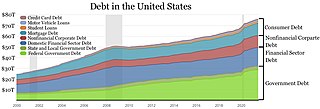
John Maynard Keynes, 1st Baron Keynes was a British economist and philosopher whose ideas fundamentally changed the theory and practice of macroeconomics and the economic policies of governments. Originally trained in mathematics, he built on and greatly refined earlier work on the causes of business cycles. One of the most influential economists of the 20th century, he produced writings that are the basis for the school of thought known as Keynesian economics, and its various offshoots. His ideas, reformulated as New Keynesianism, are fundamental to mainstream macroeconomics.

Post-Keynesian economics is a school of economic thought with its origins in The General Theory of John Maynard Keynes, with subsequent development influenced to a large degree by Michał Kalecki, Joan Robinson, Nicholas Kaldor, Sidney Weintraub, Paul Davidson, Piero Sraffa and Jan Kregel. Historian Robert Skidelsky argues that the post-Keynesian school has remained closest to the spirit of Keynes' original work. It is a heterodox approach to economics.

King's College is a constituent college of the University of Cambridge. Formally The King's College of Our Lady and Saint Nicholas in Cambridge, the college lies beside the River Cam and faces out onto King's Parade in the centre of the city.

A scholarship is a form of financial aid awarded to students for further education. Generally, scholarships are awarded based on a set of criteria such as academic merit, diversity and inclusion, athletic skill, and financial need.
Tuition payments, usually known as tuition in American English and as tuition fees in Commonwealth English, are fees charged by education institutions for instruction or other services. Besides public spending, private spending via tuition payments are the largest revenue sources for education institutions in some countries. In most developed countries, especially countries in Scandinavia and Continental Europe, there are no or only nominal tuition fees for all forms of education, including university and other higher education.

The Bretton Woods system of monetary management established the rules for commercial relations among the United States, Canada, Western European countries, and Australia among 44 other countries after the 1944 Bretton Woods Agreement. The Bretton Woods system was the first example of a fully negotiated monetary order intended to govern monetary relations among independent states. The Bretton Woods system required countries to guarantee convertibility of their currencies into U.S. dollars to within 1% of fixed parity rates, with the dollar convertible to gold bullion for foreign governments and central banks at US$35 per troy ounce of fine gold. It also envisioned greater cooperation among countries in order to prevent future competitive devaluations, and thus established the International Monetary Fund (IMF) to monitor exchange rates and lend reserve currencies to nations with balance of payments deficits.

A student loan is a type of loan designed to help students pay for post-secondary education and the associated fees, such as tuition, books and supplies, and living expenses. It may differ from other types of loans in the fact that the interest rate may be substantially lower and the repayment schedule may be deferred while the student is still in school. It also differs in many countries in the strict laws regulating renegotiating and bankruptcy. This article highlights the differences of the student loan system in several major countries.

The National Audit Office (NAO) is an independent Parliamentary body in the United Kingdom which is responsible for auditing central government departments, government agencies and non-departmental public bodies. The NAO also carries out value for money (VFM) audits into the administration of public policy.
A comptroller is a management-level position responsible for supervising the quality of accounting and financial reporting of an organization. A financial comptroller is a senior-level executive who acts as the head of accounting, and oversees the preparation of financial reports, such as balance sheets and income statements.
A public university or public college is a university or college that is owned by the state or receives significant funding from a government.

Sir Henry Roy Forbes Harrod was an English economist. He is best known for writing The Life of John Maynard Keynes (1951) and for the development of the Harrod–Domar model, which he and Evsey Domar developed independently. He is also known for his International Economics, a former standard textbook, the first edition of which contained some observations and ruminations that would foreshadow theories developed independently by later scholars.
Richard Ferdinand Kahn, Baron Kahn, CBE, FBA was a British economist.

In the United States, student loans are a form of financial aid intended to help students access higher education. In 2018, 70 percent of higher education graduates had used loans to cover some or all of their expenses. With notable exceptions, student loans must be repaid, in contrast to other forms of financial aid such as scholarships, which are not repaid, and grants, which rarely have to be repaid. Student loans may be discharged through bankruptcy, but this is difficult.

Higher education in Nova Scotia refers to education provided by higher education institutions. In Canada, education is the responsibility of the provinces and there is no Canadian federal ministry governing education. Nova Scotia has a population of less than one million people, but is home to ten public universities and the Nova Scotia Community College, which offers programs at 13 locations.
Buckmaster & Moore (B&M) was a London stockbroker established in 1895 and acquired by Credit Suisse Group in 1987.
An income share agreement is a financial structure in which an individual or organization provides something of value to a recipient who, in exchange, agrees to pay back a percentage of their income for a fixed number of years.

Form 1098-T, Tuition Statement, is an American IRS tax form filed by eligible education institutions to report payments received and payments due from the paying student. The institution has to report a form for every student that is currently enrolled and paying qualifying tuition and related expenses.
Purdue University Global, Inc., formerly Kaplan University, is a public online university that operates as a public-benefit corporation, and is part of the Purdue University system. Its former profit owner, Graham Holdings Company, is entitled to receive 12.5% of Purdue Global's operating revenue.

Provincial Finance and Accounts Service / Provincial Civil Service (Finance), often abbreviated to as PFAS or PCS (Finance) is one of the premier Group A state civil service under Executive branch of Government of Uttar Pradesh responsible for Finance Administration of the state.
Financial issues facing students in the United States include the rising cost of tuition, as well as ancillaries, such as room and board, textbook and coursework costs, personal expenses, and transportation.












